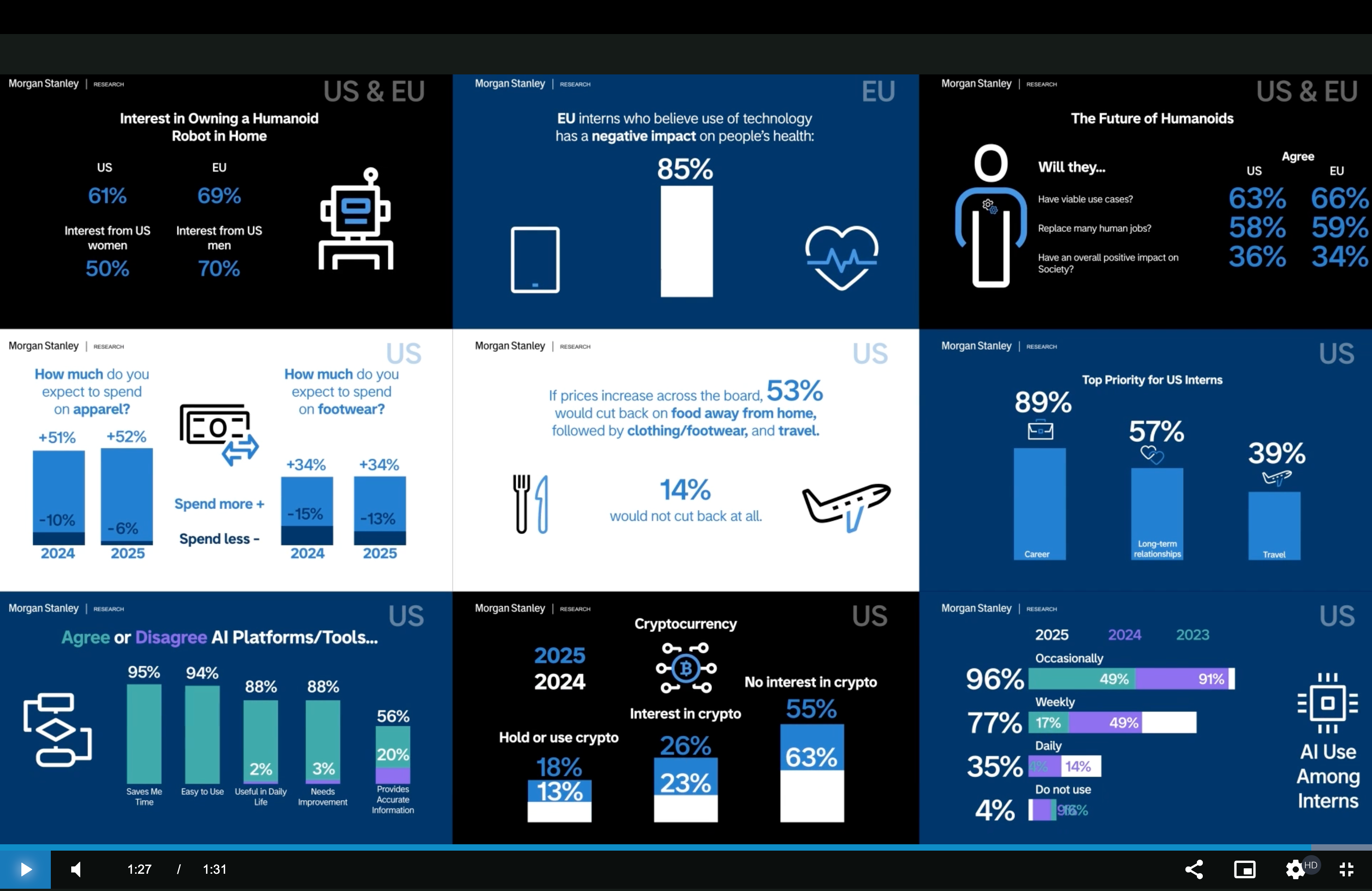Morgan Stanley Intern Survey: Crypto Interest Lags Behind AI & Robots - ’We Are Still Early’
Wall Street's next generation picks algorithms over assets.
The Digital Divide
Morgan Stanley's annual intern survey reveals artificial intelligence and robotics dominate interest charts—crypto trails as distant third. The bank's future decision-makers see more potential in silicon than Satoshi.
Generational Shift or Temporary Blip?
Interns prioritize tangible tech applications over decentralized dreams. They're betting on machines that build things rather than tokens that represent them—a pragmatic approach that would make any old-school fund manager smirk.
The Silver Lining Playbook
True believers counter that lagging interest signals untapped potential. When everyone's focused on one shiny object, smart money looks elsewhere—though good luck explaining that to interns who'd rather program robots than parse whitepapers.
Wall Street's perpetual cycle continues: the young bloods arrive thinking they'll change finance, only to discover some traditions—like chasing whatever's hottest this quarter—never really go out of style.

More open to AI
The survey revealed a clear adoption of artificial intelligence (AI) by future finance industry leaders, with 96% of U.S. interns and 91% of their European counterparts reporting the use of technology at least occasionally.
The consensus is that AI is effective, with nearly all respondents agreeing they "save me time" and are "easy to use". However, 88% of interns also had a nuanced view, believing the technology still "needs accuracy improvement."
The widespread adoption is consistent with the sentiment on Wall Street, where the Mag 7 firms are expected to spend $650 billion in capital expenditures and research and development this year.
Trillion dollar humanoids market
The survey revealed that most interns are interested in owning humanoids, or sophisticated machines designed with a human-like FORM and capabilities, but are cautious about their impact on society.
Over 60% of U.S. interns and 69% of European interns expressed interest in having a humanoid at home, with both regions believing the robots will have "viable use cases" and replace many human jobs.
Still, only 36% of U.S. interns and 24% of Europeans agreed that humanoids will have a positive impact on society.
Morgan Stanley estimates that the humanoid market could surpass $5 trillion by 2050, including sales from supply chains and networks for repair, maintenance and support.
"Although humanoids are still under development, there could be more than 1 billion by 2050, with 90% used for industrial and commercial purposes," the investment banking giant said in a report in May.

